No Consequences

I definitely enjoyed Framed by Frank Cottrell Boyce. I love the wry, slightly off-kilter humor in the book and the way the main character, Dylan, doesn't quite get things. I loved the miscommunications related to art and Teenage Mutant Ninja Turtles. I loved the theme relating to the transforming nature of art. (Art is sort of like religion in Boyce's first book,Millions.
However, I did have a few problems with Framed. First off, while I enjoyed the transforming-nature-of-art material, I enjoy looking at a picture every now and then. I thought it was a subtle and witty message, but because it's a message I am open to, anyway, I'm not sure if it really was or if I just thought it was because I agree with it. I don't know if others would find it didactic.
SPOILER.
That's minor. A bigger problem, for me, was the happy ending. In order to give the book a happy ending, the characters who had committed criminal acts had to all get away with them in improbable ways. They faced no consequences for their actions. I'm not getting all moral here and saying, "There must be consequences for actions." I'm saying that usually there are consequences for actions.
Now, you could argue that the family in Millions got away with an illegal act, too. But the act wasn't as blatantly illegal as the acts in Framed and there was only one. (Plus, they may have had saints helping them.) In Framed, there are three different illegal acts. It just isn't logical that everyone got away with them, even given that none of the crimes were successfully pulled off.
Plus, didn't Dad, who was a real stand-up guy, essentially abandon his family? Mom was all depressed about that, but it seemed to just run off the backs of everyone else. (Marie took to her room because she was upset that she was going to grow old and lose her looks, not because Dad had walked out on them when the going got rough.)
That sounds as if I had a lot of complaints, but, really, the book has a lot to offer. With a reworked ending, it would make a charming movie of the The Englishman Who Went Up a Hill But Came Down A Mountain variety. If only Colm Meaney were younger, he could play the father. (The fact that he is Irish instead of Welsh shouldn't be a stumbling block. He played a Welshman in The Englishman Who Went Up a Hill But Came Down A Mountain. Evidently movie people can't tell the difference.) And if Hugh Grant were younger and wouldn't act so Bertie Woosterish, he'd be perfect for Lester.
Morning After Thoughts: After having slept on this, I think I was wrong when I said Dad's abandonment of his family just ran off the backs of everyone but Mom. The kids were constantly coming up with money-making schemes hoping that would bring him back. So they did notice and his absence did influence the action of the book. His cutting out on the family, though, was another action, like the criminal acts, for which there was no real consequence. You could argue that these kids were young, they just wanted their dad, but I still think bringing him back and everyone just going on as before is a bit unbelievable.
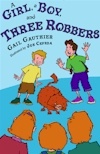
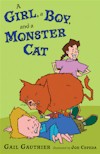
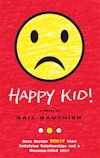
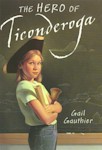
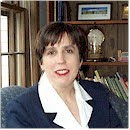



1 Comments:
Well I'm not really a fan of Art (I mostly look at paintings and say "Thst's nice" or "What's that?" before moving on as pictures don't do a lot for my word-drenched brain), but I thoroughly enjoyed Framed and didn't find the message at all didactic.
Post a Comment
<< Home